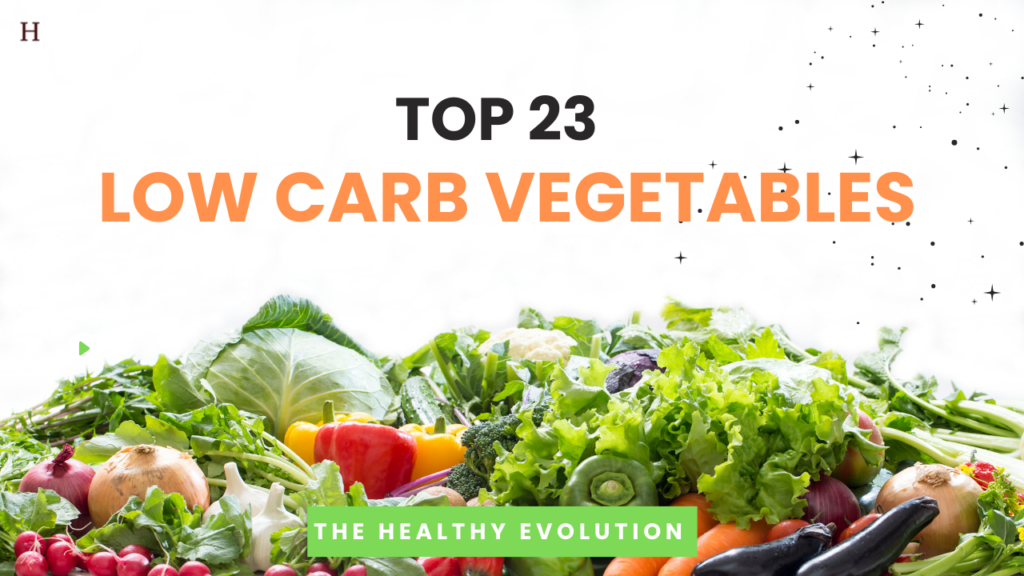23 Healthy Low Carb Vegetables To Eat
Low carb vegetables are rich in minerals and vitamins and they are mainly low in calories and high in fiber.
The importance of vegetables in maintaining a low-carb lifestyle cannot be overstated. These nutritional powerhouses are not only delicious, but also high in vitamins, minerals, and fibre, making them an important part of a balanced diet.
Low-carb vegetables are not only good for weight loss, but they also help to keep blood sugar levels stable and provide a variety of nutrients.
Eating vegetables in a low-carb diet is the best choice. Vegetables help you to stay healthy.
Top 23 Low Carb Vegetables
Here are the top 23 low-carb vegetables
1. Broccoli
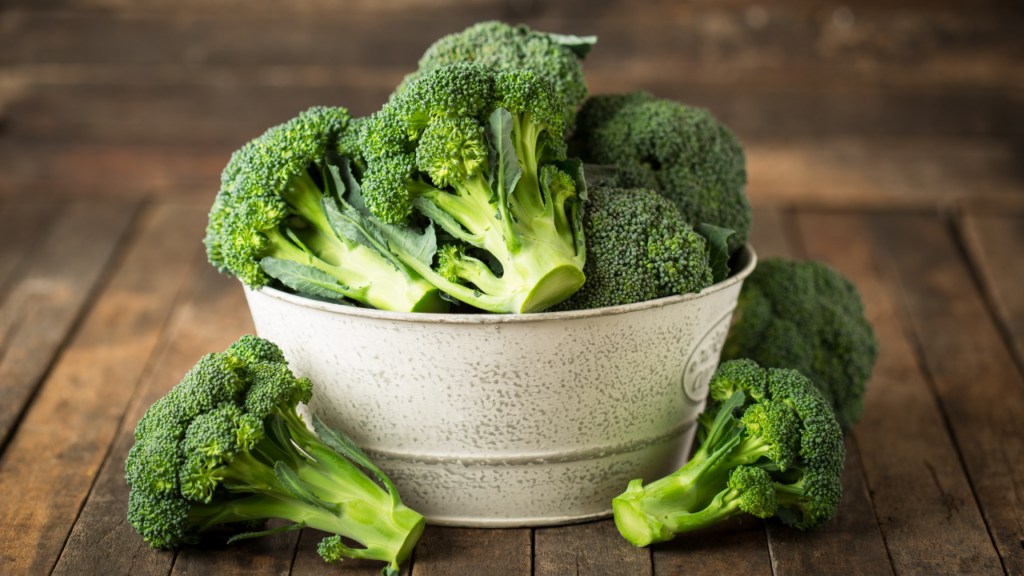
Broccoli is one of the most nutritious and low-carb vegetables. It is the best choice for the low-carb and keto diets.
Broccoli contains many essential vitamins and minerals such as vitamin K, vitamin C, vitamin A and folate.
It is a good source of fiber which helps in healthy digestion.
Broccoli contains antioxidants mainly sulforaphane that help in many health benefits.
100g of broccoli contains 7g of carbs and 2.5g of fiber.
2. Spinach
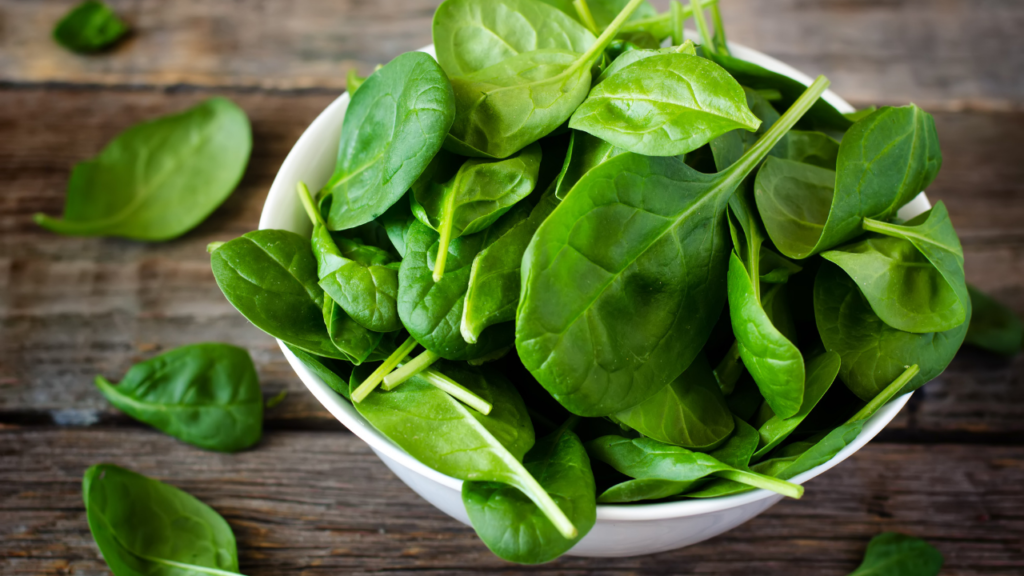
Spinach is a healthy low-carb vegetable and it has many essential nutrients in it.
It contains antioxidants mainly lutein and zeaxanthin which supports eye health.
Spinach contains essential vitamins and minerals including iron, vitamin A, vitamin K and folate.
It has many health benefits such as supporting heart health, maintaining healthy blood and energy levels and helping in weight management.
100g of cooked spinach contains 3.5g of carbs with 2.5g of fiber and raw spinach contains 1.5g of carbs with
3. Kale

Kale is a nutrient-dense and low-carb green vegetable. It is packed with many essential minerals and vitamins.
Kale contains antioxidants mainly carotenoids and flavonoids that help to reduce inflammation and fight oxidative stress.
It has vitamins and minerals like calcium, manganese, potassium, vitamin K and vitamin C.
Kale helps to lower blood pressure, protects against type 2 diabetes and helps in digestion.
It is mainly high in vitamin K which is essential for bone health and blood clotting.
100g of raw kale contains 0.9g of carbs with 0.9 of fiber, 2% of DV of potassium and 4% of DV of calcium.
4. Cauliflower

Cauliflower is the most popular low-carb vegetable and it is very suitable for low-carb and keto diets.
It is rich in fiber which is beneficial for healthy digestion.
It contains essential vitamins and minerals such as potassium, magnesium, vitamin K and vitamin C
100g of cauliflower contains 5g of carbs with 3g of fiber and 54% of dv of vitamin C.
5. Cabbage
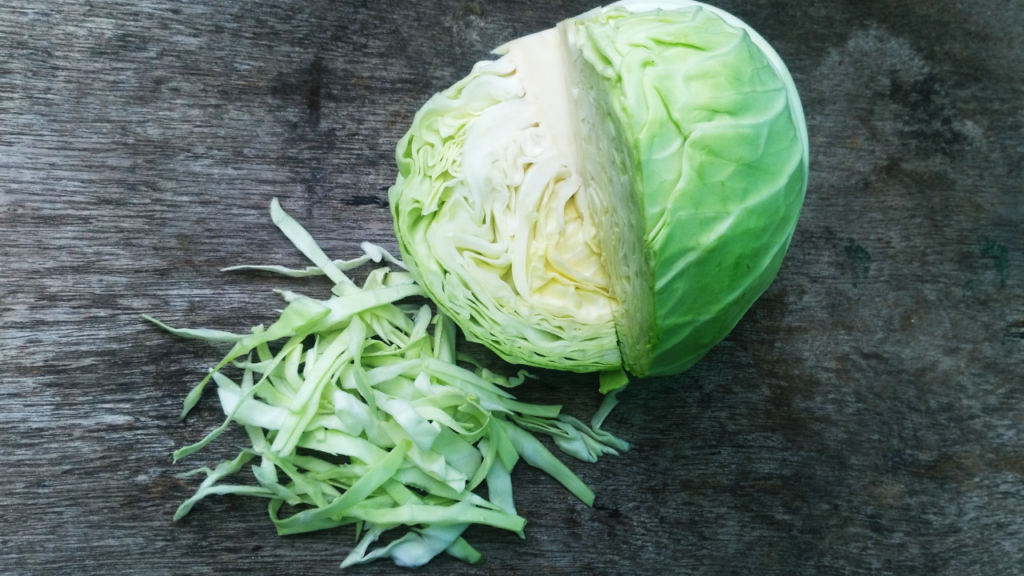
Cabbage is a nutritious vegetable.
It is rich in vitamin C which supports skin health and the immune system.
Cabbage is the best source of vitamin K which is essential for blood clotting and bone health.
100g of cabbage contains 5.5g of carbs with 2.5g of fiber.
It also provides 36% of DV for vitamin C and 74% of DV for vitamin K.
6. Green beans
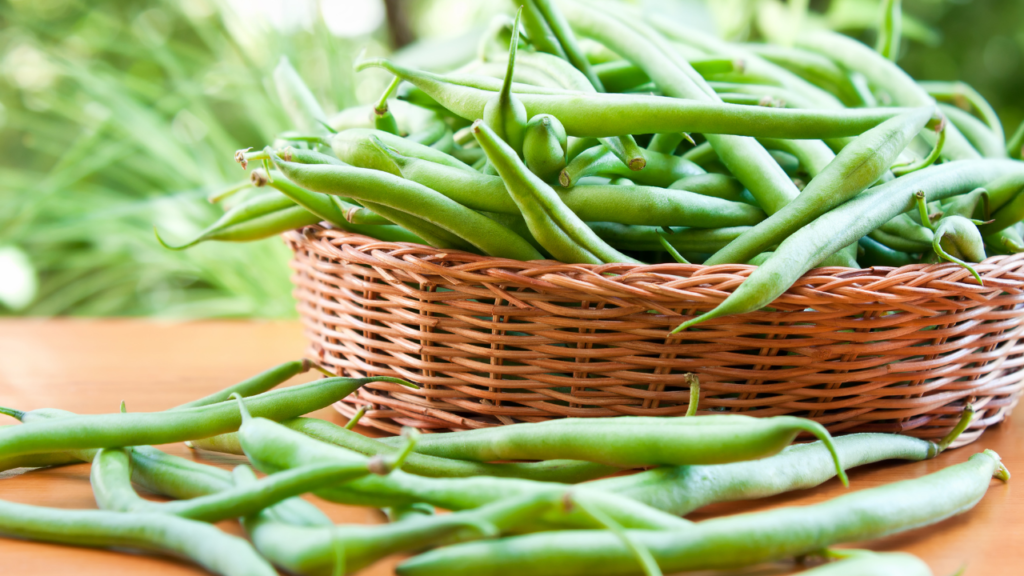
Green beans are a nutritious vegetable and it is also called snap beans or string beans.
It is low in fat and calories which helps in weight management.
It is a good source of vitamins and minerals such as potassium, magnesium, vitamin C and vitamin K.
100g of green beans contains 7g of carbs with 2.7g of fiber.
It also provides 36% of DV for vitamin K and 14% of DV for vitamin C.
7. Cucumber
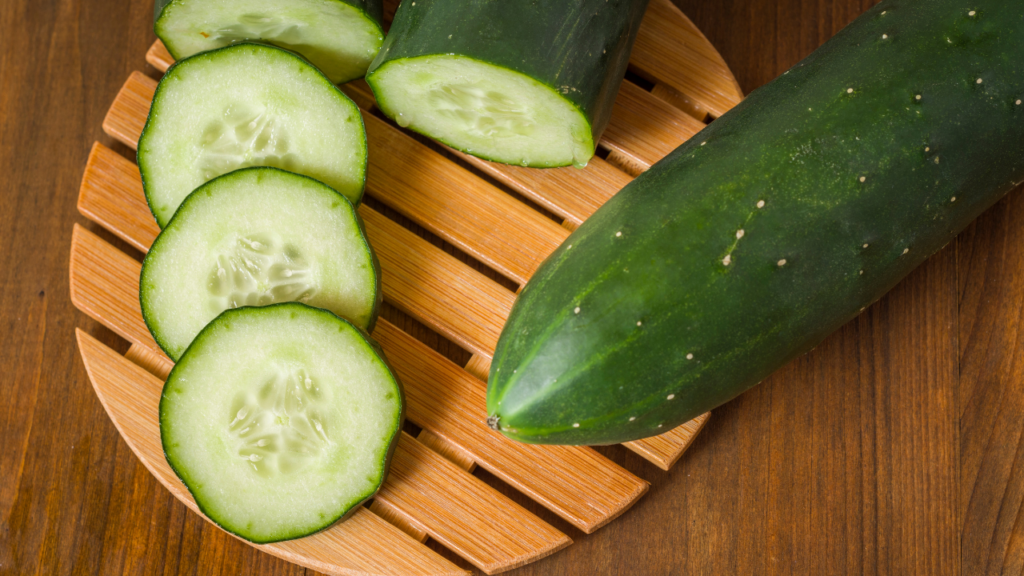
Cucumbers are the best hydrating and low-carb vegetable.
It is mainly composed of water which helps to stay hydrated.
Cucumber helps to protect against cancer and it supports brain health.
Cucumber is low in calories and carbs.
100g of cucumber contains 3.6g of carbs
8. Tomatoes
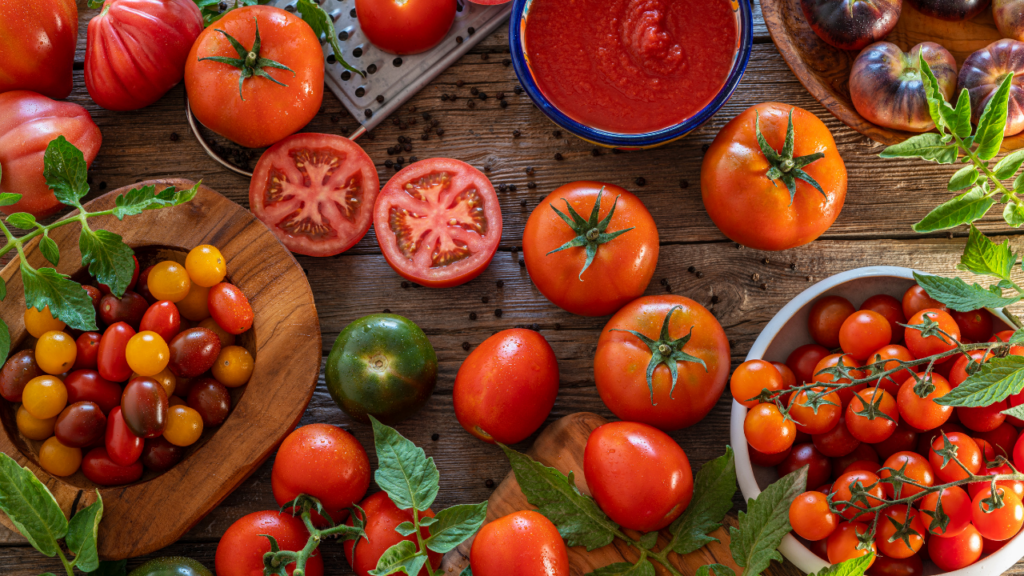
Tomatoes are mainly consumed vegetables but are technically a fruit.
It is a good source of vitamins and minerals including vitamin A, vitamin C, vitamin K and potassium.
Tomatoes contain antioxidants mainly lycopene which help to reduce the risk of chronic diseases and prostate cancer.
It is low in fat and calories so you can add it to your diet.
100g of tomatoes contain 3.8g of carbs.
9. Bell Peppers
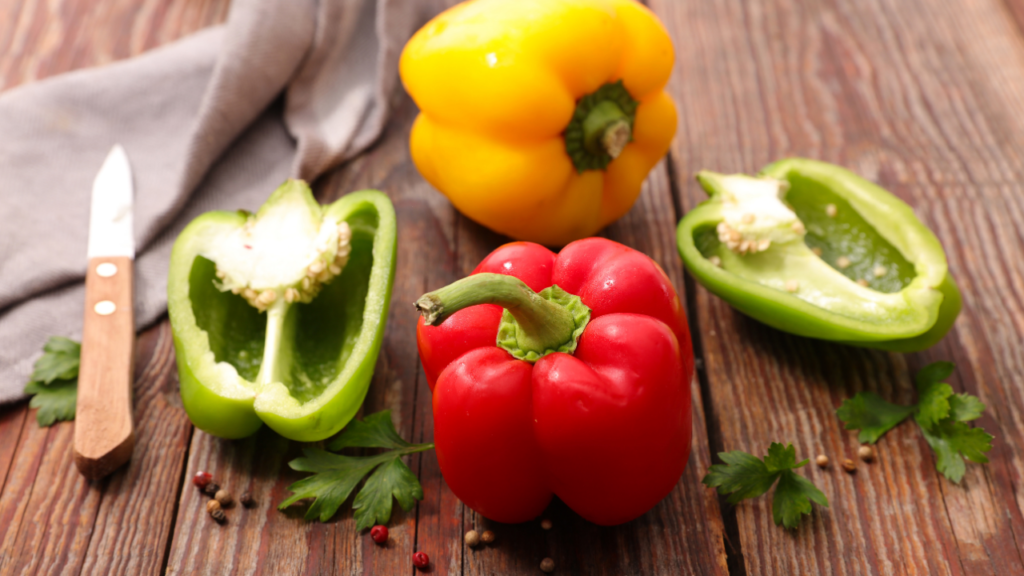
Bell peppers are also called sweet peppers. They are colorful and nutritious low-carb vegetables.
They are rich in antioxidants mainly beta-carotene and other carotenoids which help to reduce inflammation and reduce the risk of cancer.
It is high in vitamin C which is essential for skin health and the immune system.
100g of bell pepper contains 6g of carbs with 2g of fiber.
It also provides 211% of DV for vitamin C and 17% of DV for vitamin A.
10. Asparagus
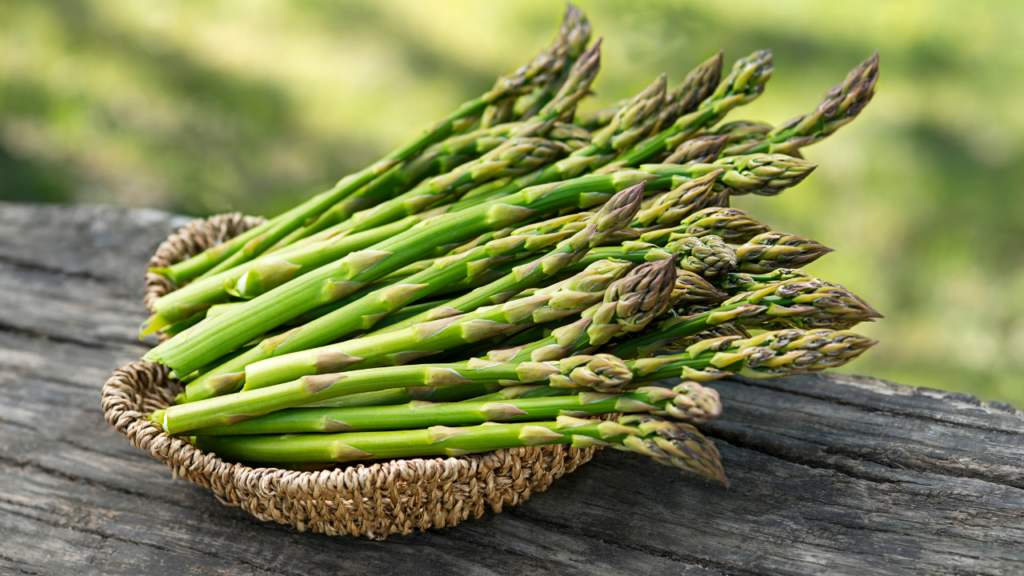
Asparagus is a very delicious and low-carb vegetable.
It is a good source of vitamins and minerals mainly Vitamin K, vitamin C and vitamin A.
Asparagus contains antioxidants mainly glutathione which has many health benefits.
It helps to lower the blood pressure and helps to protect against chronic diseases.
100g of cooked asparagus contains 6.8g of carbs with 4g of fiber.
It also contains 37% of DV for vitamin K.
11. Zucchini
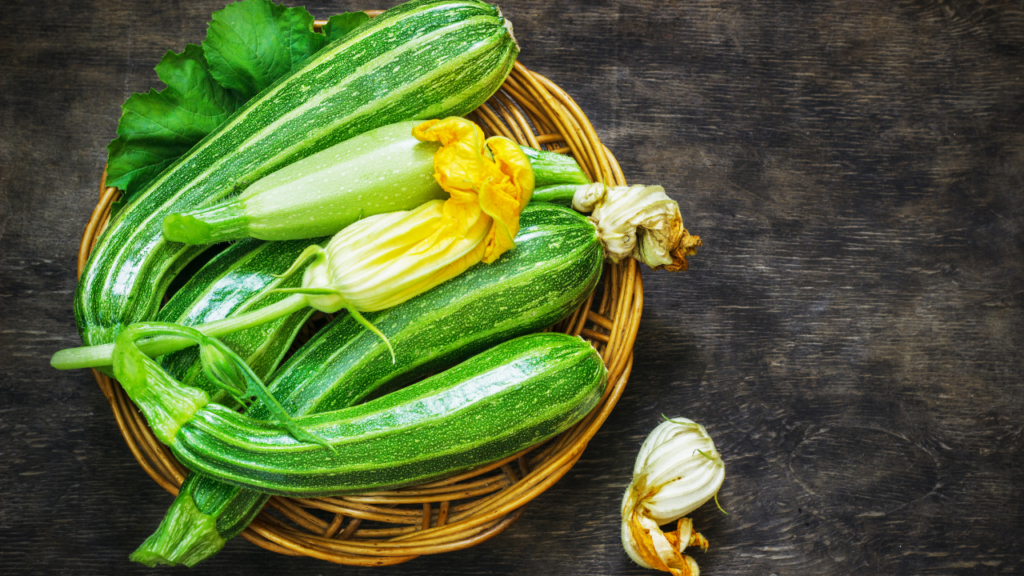
Zucchini is also known as courgetti. It is a low-carb and versatile vegetable that is widely used in low-carb and keto dishes.
It is rich in antioxidants mainly beta carotene and lutein which is beneficial for eye health.
100g of zucchini contains 2.7g of carbs with 1g of fiber and it also provides 19% of DV for vitamin C.
12. Avocado
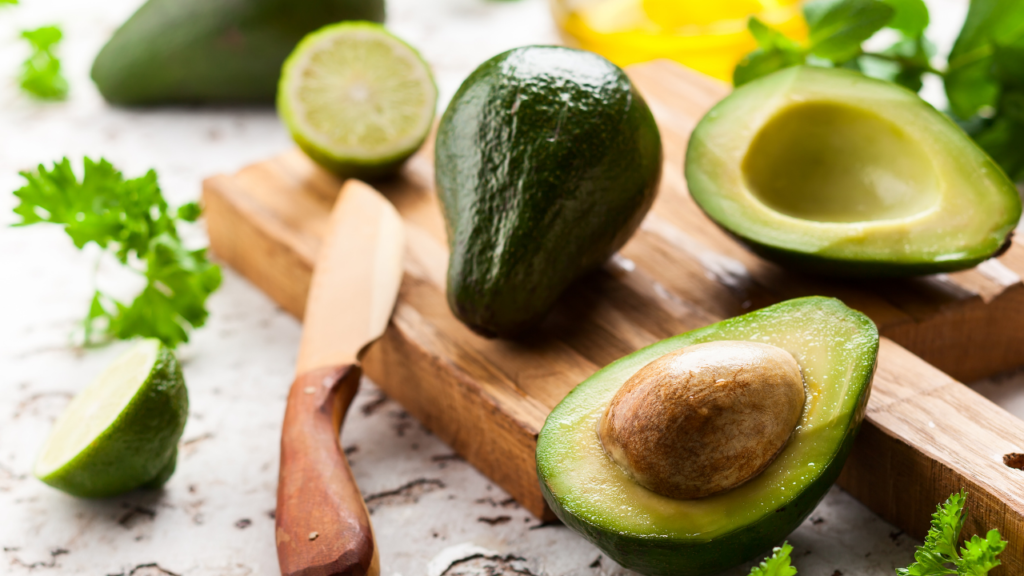
Avocado is a unique and delicious food. It is a fruit but it is consumed as vegetables only.
It is a good source of monosaturated fats mainly oleic acid which supports eye health and helps to reduce cholesterol levels.
Avocados are rich in essential vitamins and minerals such as vitamin K, vitamin E, potassium and B vitamins.
Avocados are low in sugar and calorie, also it does not contain cholesterol.
100g of avocados contain 8.5g of carbs with 6.7g of fiber.
It also provides 40% of DV for vitamin K, 32% of DV for vitamin E and 35% of vitamin B6.
13. Onions
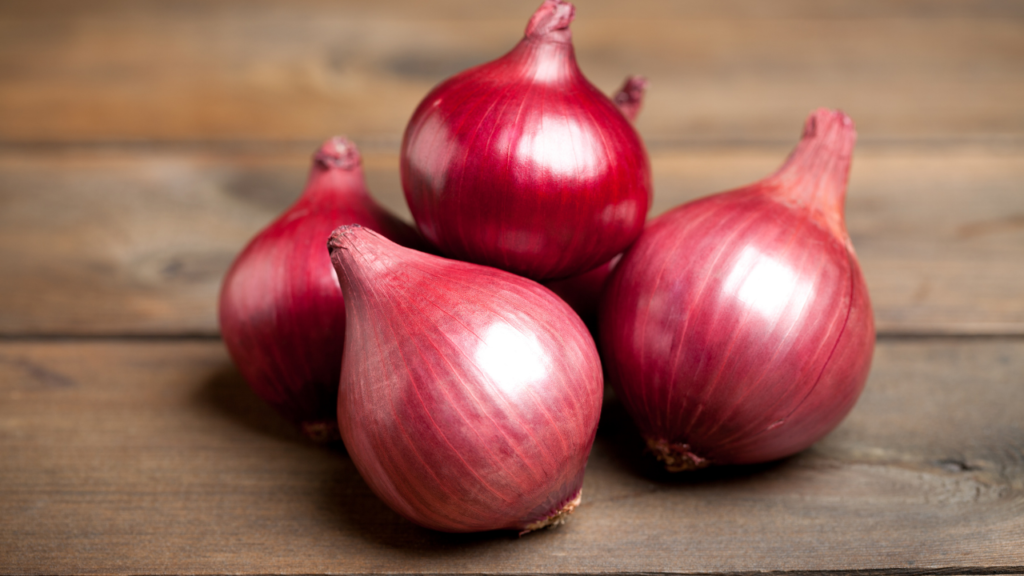
Onions are a delicious and aromatic food that can be included in a low-carb or ketogenic diet in moderation.
They are rich in antioxidants mainly quercetin which has many health benefits.
Onion contains essential vitamins and minerals such as vitamin B6, folate and vitamin C.
100g of onion contains 9g of carbs with 2g of fiber.
14. Mushroom
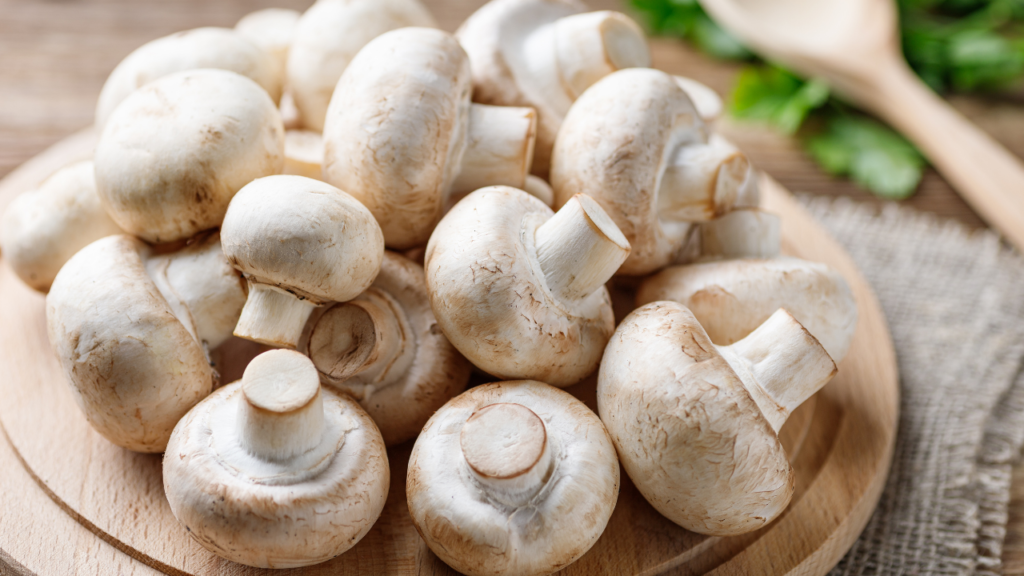
Mushrooms are a low-carb and flexible food that can be a helpful addition to low-carb and ketogenic diets.
They are noted for their distinct flavor and texture, and they can be utilized in a variety of savory cuisines.
Mushrooms contain antioxidants such as ergothioneine and selenium that has many health benefits.
It contains essential B vitamins mainly riboflavin and niacin.
100g of raw mushroom contains 2.3g of carbs with 1g of fiber.
It also provides 22% of DV for riboflavin and 16% of DV for niacin.
15. Celery
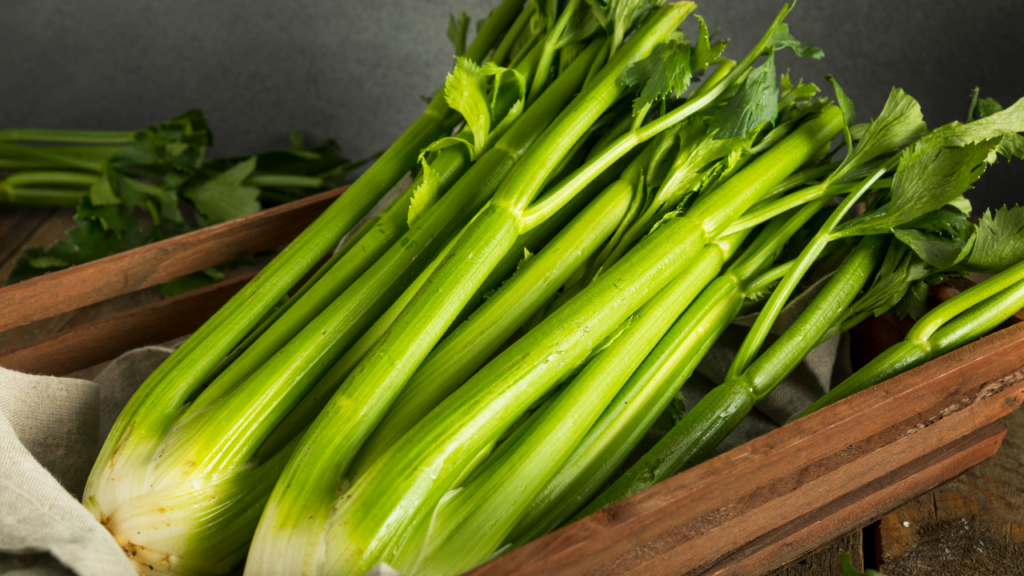
Celery is the best low-carb vegetable and it is also low in calories.
It is a good source of dietary fiber which helps in healthy digestion.
Celery is mainly known for its high-water content which helps to stay hydrated.
It contains vitamins and minerals like vitamin K, vitamin C and potassium.
100g of raw celery contains 3g of carbs with 1.6g of fiber and it provides 25%of DV for vitamin K.
16. Romain Lettuce
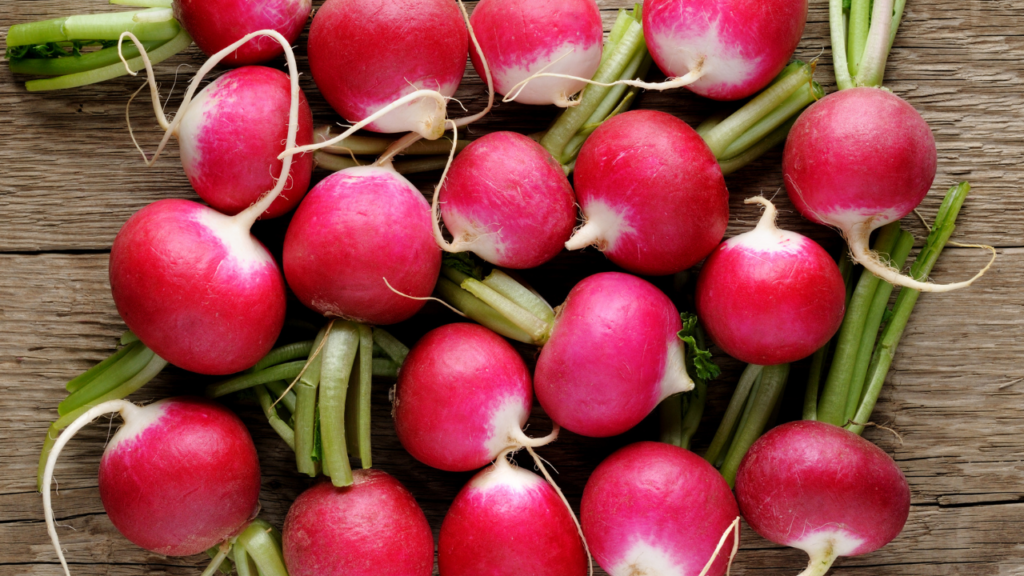
Romaine lettuce, also known as cos lettuce, is a low-carb leafy green vegetable that is frequently used as the foundation for salads and lettuce wraps.
Because of its low carbohydrate content, it is a popular choice for people following low-carb and ketogenic diets.
Romain lettuce is the best choice for a low-carb diet due to its water content, it helps to prevent dehydration.
It is a good source of vitamins and minerals including vitamin A, vitamin C, vitamin K and folate.
100g of Romain lettuce contains 1g of carbs with 1g of fiber.
It also provides 37% of DV for vitamin K and 14% of DV for vitamin A.
17. Radishes
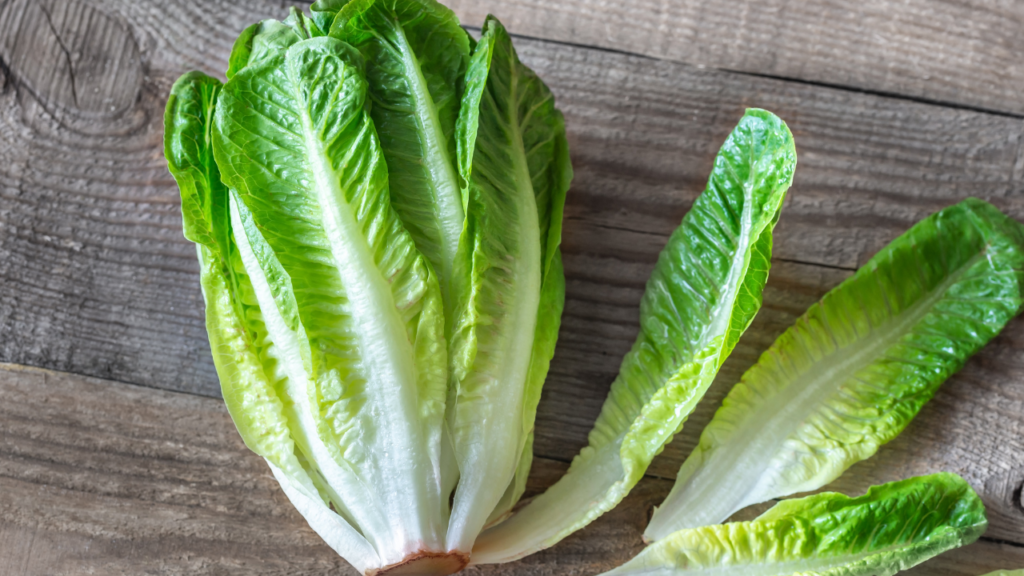
Radishes are a low-carb, crisp vegetable with a peppery touch that can be used to salads, meals, and snacks.
They are frequently used in low-carb and ketogenic diets to provide a pleasant crunch and zesty flavor.
Radishes provide essential vitamins including vitamin C, potassium and folate.
It is low in calories and fat which supports weight loss.
Radishes contain antioxidants mainly anthocyanins that have many health benefits.
100g of radishes contains 3.9g of carbs with 1.9g of fiber and it also provides 19% of DV for vitamin C.
18. Brussels sprouts
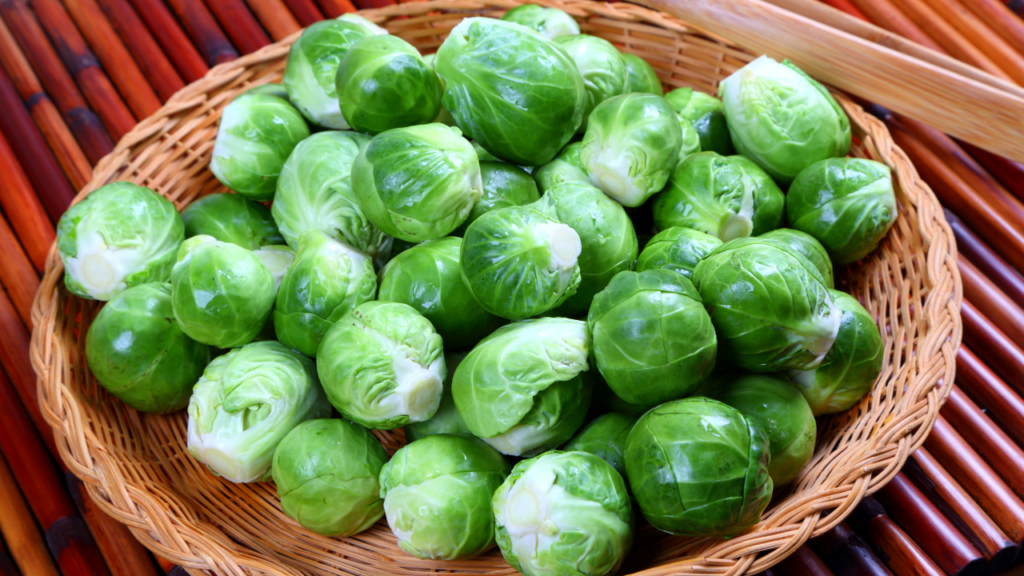
Brussels sprouts are a low-carb cruciferous vegetable that contains minerals and fiber, making them an excellent choice for low-carb or ketogenic diets.
They have a distinct flavor and can be prepared in a variety of ways.
Brussels sprouts are mainly known for their high content of antioxidants which have potential health benefits.
It is the many healthy vitamins and minerals including vitamins C, K, A and folate.
100g of brussels sprouts contain 7g of carbs with 2g of fiber.
It also provides 83% of DV for vitamin C and 130% of DV for vitamin A.
19. Swiss chard
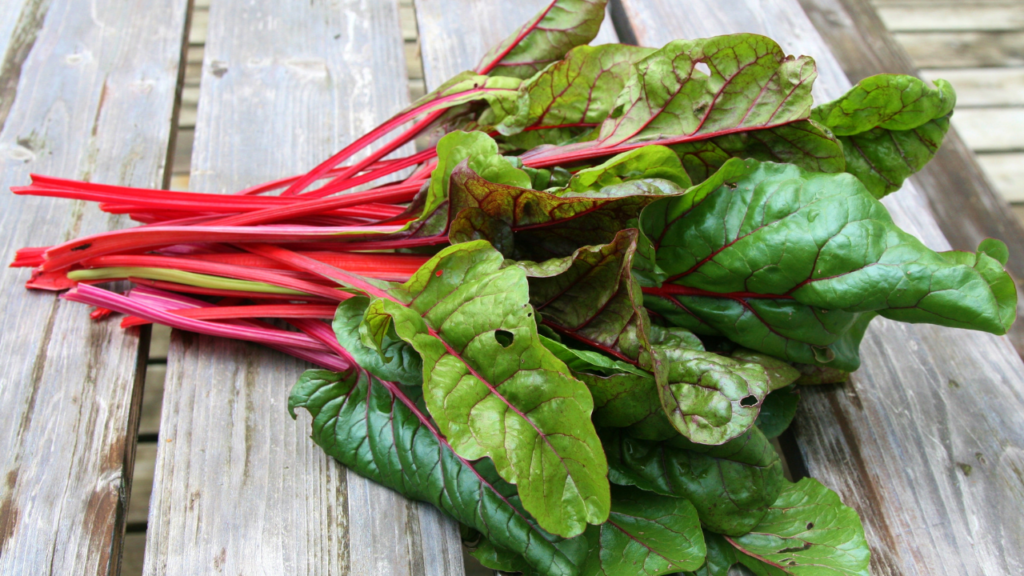
Swiss chard is a healthy leafy green vegetable that is also low in carbohydrates, making it an excellent choice for individuals on low-carb or ketogenic diets.
It contains antioxidants such as beta-carotene and lutein, both of which have potential health advantages.
Swiss chard is packed with essential vitamins and minerals such as vitamins K, A, C, and potassium.
100g of Swiss chard contains 1.6g of carbs with 0.6 of fiber and it provides 249% of DV for vitamin K.
20. Arugula
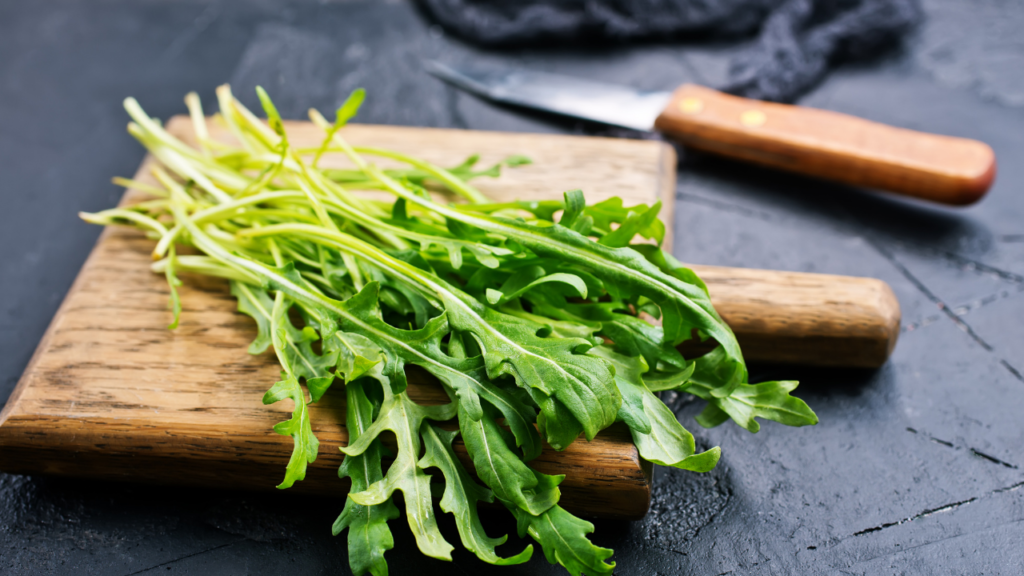
Arugula, also referred to as rocket or roquette, is a leafy green vegetable that is low in carbs but high in flavor.
It is low in calories and high in vitamins and minerals such as vitamin K, vitamin A, vitamin C, and folate.
It also contains phytonutrients and antioxidants, which may be beneficial to one’s health.
100g of arugula contains 3.7g of carbs with 1.6g of fiber.
It also provides 90% of DV for vitamin K and 24% of DV for folate (vitamin B9).
21. Bok Choy
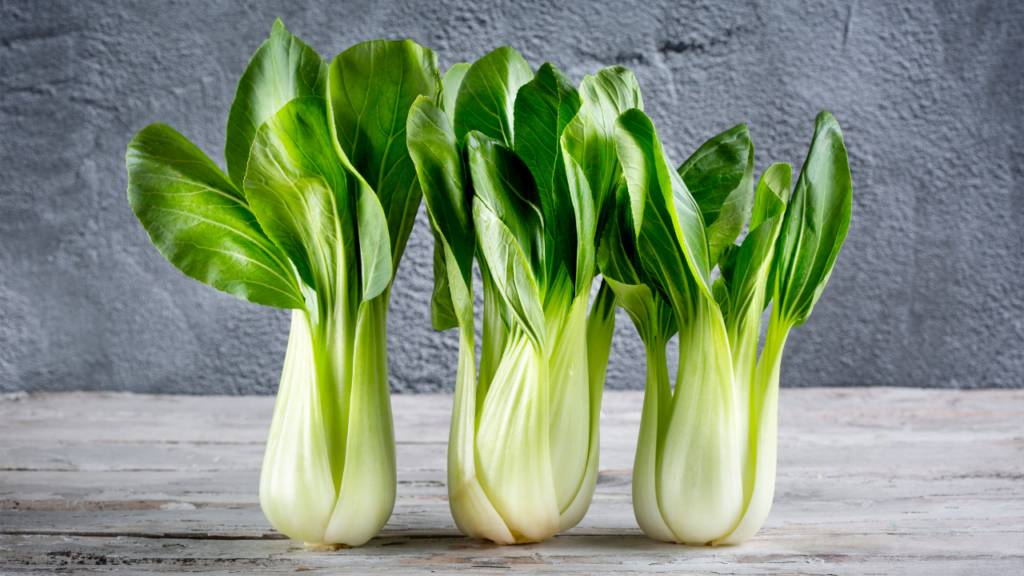
Bok choy, commonly known as Chinese cabbage or pak choi, is a high-nutrient, low-carb vegetable.
It has a moderate and a little peppery flavor and is available in both infant and mature forms.
Bok choy contains antioxidants including beta-carotene and lutein, which may be beneficial to your health.
It has plenty of vitamins and minerals such as Vitamins K, C, A and folate.
100g of bok choy contains 1.5g of carbs with 0.7g of fiber.
It provides 54% of DV for vitamin C, 44% of DV for vitamin K and 30% of DV for vitamin A.
22. Artichokes
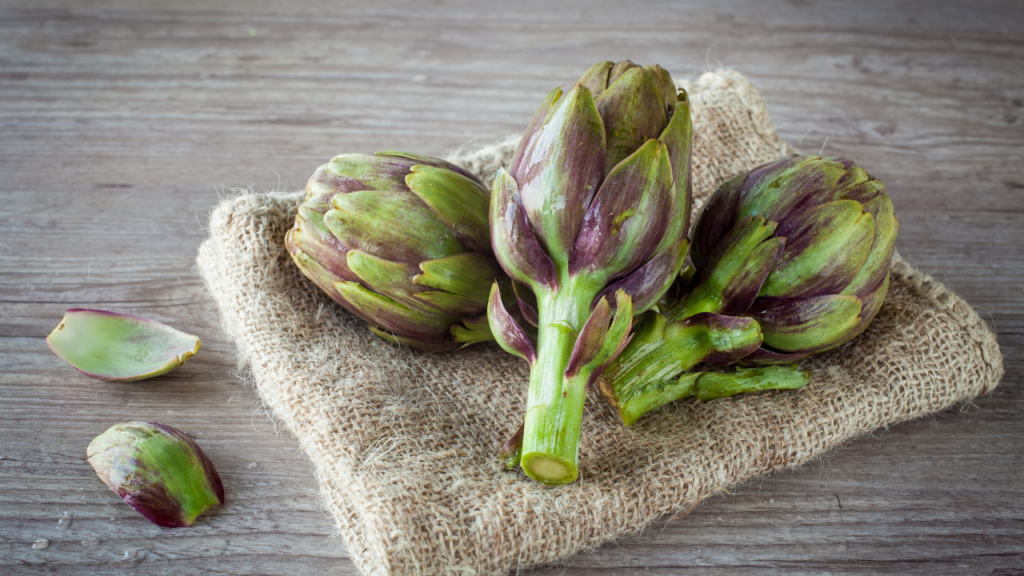
Artichokes are a delicious and low-carb vegetable that may be used as part of a low-carb or ketogenic diet.
They have a distinct flavor and can be used in a variety of dishes.
They contain antioxidants like quercetin, which may provide health advantages.
Artichokes are high in dietary fiber, vitamins, and minerals while being low in calories. They contain a lot of fiber, vitamin C, vitamin K, and folate.
120g of artichokes contain 13g of carbs with 7g of fiber.
23. Eggplant


